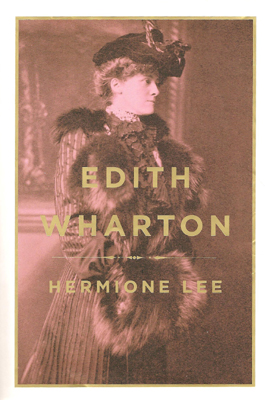Approaching Wharton

The end is in sight. I've reached the antepenultimate chapter of Hermione Lee's Edith Wharton. The books is nothing less than formidable, for the simple reason that its subject was one of the most formidable women ever to achieve fame. Shy and generally wretched as a girl (at least when she wasn't reading or "making up"), Edith Jones grew up to be an almost furiously organized great lady, with houses and gardens and a motor, who also wrote first-class fiction. There are times when you almost feel that she took herself too seriously. But then you see that what she took seriously was enjoying a meaningful life. She was very impatient with with anything that got in her way, and she had nothing but contempt for inferior amusements. Although she was a genuine Lady Bountiful to the needy and the distressed, her snobbery rose like Brünnhilde's fire as the position of those she dealt with approached her own. But she had no use for "society." She seems never to have made a connection based purely on title or celebrity. In a way, she carried herself as though she herself were at the apex of Creation, and there's something fine as well as grand about her manner.
And exhausting. How did she do it all? Of course she had servants who relieved her of everyday petty cares. (That's why she was so organized: once she had set something up, she didn't want to have to think about it.) But her literary output alone would have been entirely beyond, say, me. Her gardens benefited from sedulous attention, (You can see her gardens outside of Paris on Google Maps, by searching for Rue Édith Wharton, St Brice-sous-le-forêt, France; they stretch over five or six acres to the south of the road.) She was always entertaining one or another of her small band of select friends, most but not all of them accomplished men.
And then there was love. What would Wharton have been like if she'd known requited love early and long? She fell into rather insufficiently requited love late, and for not quite two years, with a somewhat dodgy and emotionally passive-aggressive man. When it was over, she was in her late forties, and losing her handsome but not beautiful looks to age. The rest of her 75 years were spent making do with friendships. And a very full schedule.
In 1919, when a Yale University professor called the novels of Wharton and Henry James "aristocratic" rather than (suitably American) "democratic." Wharton was very annoyed, and wrote to a friend,
How much longer are we going to think it necessary to be 'American' before (or in contradistinction to) being cultivated, being enlightened, being humane, and having the same intellectual discipline as other civilized countries? 'Our' shortcomings should not be dressed up as 'a form of patriotism'.
As I consider the thousands of highly educated Americans who will soon be gathering before their flat screens to watch the conclusion of a soap opera that they've persuaded themselves is worthwhile entertainment, I feel how little has changed since Wharton's day.
I've become quite fond of the dust jacket photograph, which I'd never seen before, even though it inspired the drawing on the cover of R W B Lewis's 1975 biography.


Comments
This biography sounds both daunting and worthwhile. Let me work my way through the current pile first though.
Posted by: Tony | June 11, 2007 02:56 PM